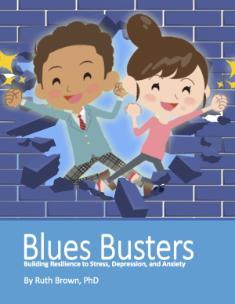
Download the latest version here!
This workbook was designed to help parents of adolescents or adults with Down syndrome to help their loved ones cope with mild feelings of stress, depression, and anxiety. The strategies in this book are based on evidence-based cognitive-behavioral treatments (CBT) for depression and anxiety in children.
This book is meant as an introduction to CBT techniques and may be helpful for those with mild symptoms. It can be downloaded, printed, photocopied, and used for your own personal use. It may not be sold or distributed publicly without the written permission of the author.
This workbook is not meant to take the place of professional mental health treatment. If you or your child are experiencing symptoms of stress, trauma, depression, anxiety, or any other mental health concerns that are interfering with life, please seek treatment from a licensed mental health provider. Look for therapists with expertise in cognitive behavioral therapy (CBT). Studies have shown that people with mild to moderate intellectual disabilities can benefit from CBT treatment.
For help finding a therapist in your area you may try the following:
- Call your insurance company or visit their website. Many insurance companies offer "care coordination" services that can help refer you to a therapist within your plan.
- Call your local social service agency, such as a community service board, for referrals.
- Check with local agencies or organizations that provide support for people with Down syndrome or developmental disabilities (e.g. ARC) for recommendations. There may be other families that have had success with a therapist in your area.
- Visit the website of the Association for Behavioral and Cognitive Therapies to find a CBT therapist http://www.findcbt.org
- Contact your state's University Center for Excellence in Developmental Disabilities (UCEDD). Each state and US territory has a UCEDD and they may be able to provide recommendations. https://aucd.org/directory/directory.cfm?program=UCEDD
It may be hard to find a therapist in your area with experience helping people with developmental and/or intellectual disabilities and they may be reluctant to work with patients for fear of not knowing how to help. It may help to share with them resources that they can use to help them help you and/or your child. For example, they can earn Continuing Education credits for taking online courses in CBT for people with intellectual and developmental disabilities. Additionally, there are research review articles summarizing the potential benefits of CBT for people with developmental disabilities and other papers describing ways that therapists can adapt their therapies for people with intellectual and developmental disabilities.